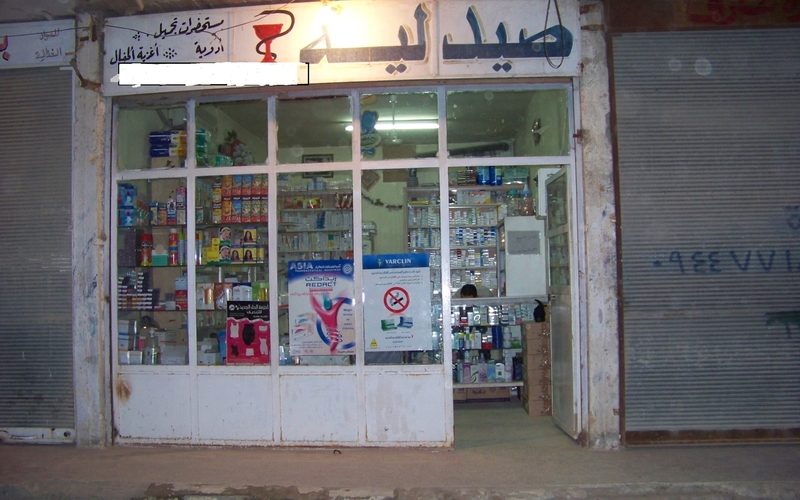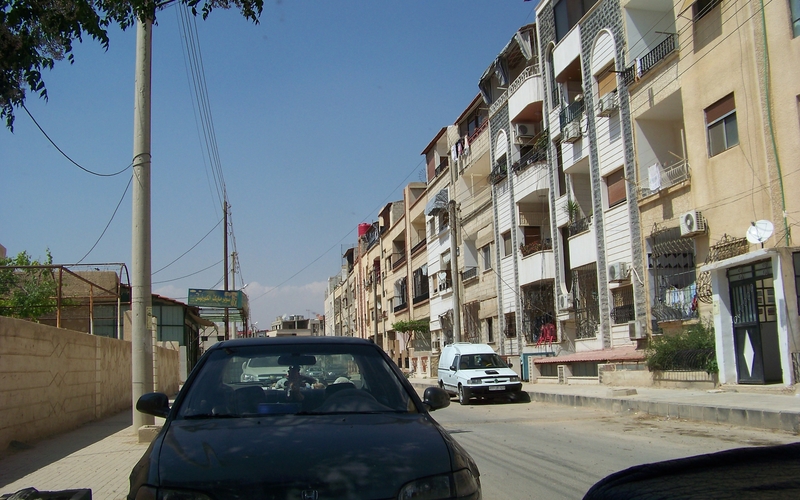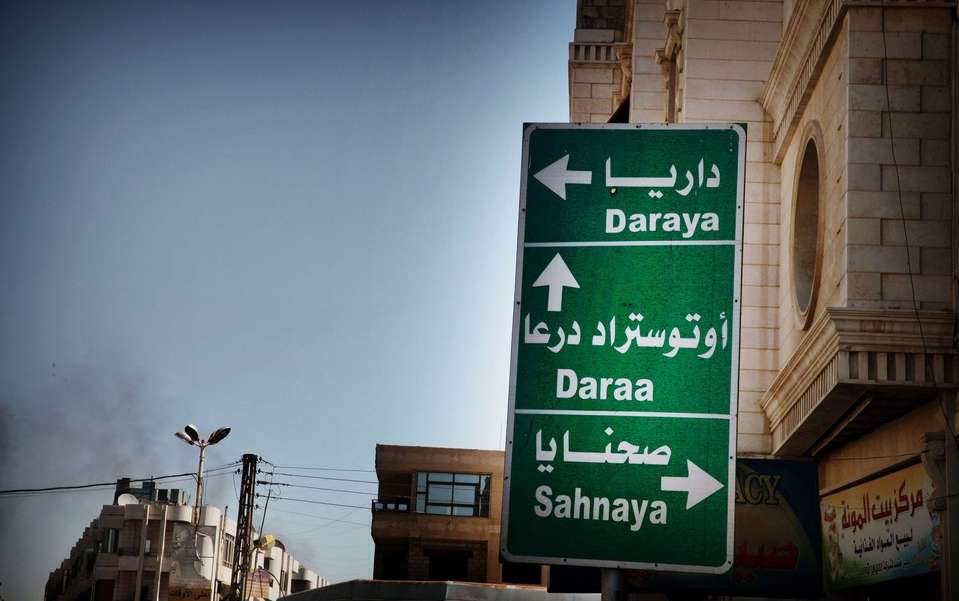With a price tag of more than $34,000—most of it borrowed—safety for this family meant separation, weeks of anxiety, and harrowing crossings on land and sea.
“I ask myself, really? We are here? Really?”
Speaking over a spotty Skype connection a few weeks after arriving in Sweden, the relief in Reem’s voice is still palpable. She’s safe, and so is her young family. Their dangerous journey from war-torn Syria is behind them now.
Reem is not her real name. She and her husband asked for anonymity in telling their story, to protect family members still stuck in a country ravaged by nearly five years of bloodshed.
“It’s a dream for every Syrian now,” says Reem of their escape.
“To save your life,” adds her husband, Adnan.
But the scramble to get out has heightened the challenges and peril for everyone: How does a family raise the money to flee when the value of assets—like homes and cars—is plummeting in a swamped market? Can the smugglers promising a safe passage be trusted? How will family and friends who stay behind continue to manage?
These are the questions refugees weigh as they contemplate flight, but their urgency pales in comparison to the questions tormenting Adnan on the five-day haul across Europe in the back of a smuggler’s truck. Instructed to eat and drink as little as possible to limit his need to use the bathroom, Adnan, the father of a six-year-old son and two-and-a-half-year-old daughter, was allowed out of the truck only twice on those five interminable days.
“In the beginning you always think, will I arrive alive? I was only thinking about my kids, that I want to see them. Would I play with them again? Sleep with them again?” he asks. “I was thinking about my wife. Would she make it or not? These are the thoughts that stay with you.”
And sharpening those torturous questions, always, are the memories of home.

The comforts of Sahnaya
For Reem and Adnan, home was Sahnaya, a Damascus suburb that had a population of about 15,000 people before the war started. The couple owned an apartment in a building with 10 units. Adnan, a pharmacist, commuted 60 kilometers roundtrip to the pharmacy he had opened in 2006 in Alsayeda Zienab. And Reem, a doctor specializing in dermatology, ran a clinic in Alyarmouk Camp.
The community was a good place to raise a family, says Reem. The weather was agreeable and the population was diverse. But with the war, everything began to crumble—their sense of security, the infrastructure they relied on, their work. Even though regime forces control the area, keeping some of the physical violence and destruction at bay—“There were no guns near us,” says Reem—daily life grew increasingly difficult.
Services became sporadic, with electricity sometimes running just three hours a day, and water cut off for days at a time. Often the street was closed, as were the markets.
“We were very afraid every time our kids went to school,” recalls Reem, who stopped working when the area around her clinic was destroyed. “Always you worry about your children, your husband. Will they come back or no?”
The couple did their best to shelter their children from the horrors tearing the country apart.
“We tried not to speak a lot or put the TV on in front of them,” says Reem. “We refused, even, to let other people speak in front of them.” But of course, there was no keeping all the bad news out.
The road on which Adnan traveled to reach his pharmacy became increasingly dangerous because of the fighting, which eventually forced him to shutter his shop and stop commuting all together. That’s when the family knew they had to leave.
“We felt we had to move before it’s (too) late,” says Adnan. “Our life is there. Our memories. Our relatives. It’s breaking our hearts, of course, to leave our country, but there is no other option.”
Separate journeys
Desperate to get their children to safety but unable to raise enough cash for the entire family to flee at once, Adnan and Reem decided to make the journey to Sweden separately. Reem’s sister was there and could offer the small family shelter for a while.
On June 26, Adnan and the two children left home, making their way first to Istanbul in Turkey, then down the coast to Izmir. There, Adnan found a smuggler to take the three of them to Bodrum—the coastal community now seared in the public’s consciousness as the place where the body of Aylan Kurdi, a Syrian toddler, washed ashore during his family’s ill-fated attempt to cross the sea to safety.
“He promised he would help me go to Greece, but after five days I realized he was lying,” says Adnan of the smuggler. Scrambling, Adnan struck a deal with a second smuggler who drove the small family three hours south to Marmaris, where they boarded a boat with 22 other people. Having learned that many people had died in water crossings the week before, Adnan made the decision to pay top dollar for seats on a safer boat to ensure his children would make it safely to the Greek island of Simi. They stayed there for three days before moving on to Athens.
But in Athens, Adnan ran into more delays. He sent the children on ahead to Sweden and had hoped to take a flight out himself, but with his resources dwindling—he had already spent a huge chunk on smugglers—he realized he had no choice but to try and make the rest of the journey north by land.
“I made a deal with a smuggler that I would go by truck with people like me,” says Adnan. “They told me you’ll stay in this truck for a long time.”
The cost for that five-day journey? 4,000 Euros, or $4,589.
By the time Adnan got to Sweden, reunited with his children, and found a way to ensure that his wife made it, too, the family had spent 30,000 Euros, or $34,422—most of it borrowed—on its escape from Syria. And that doesn’t begin to include the psychological toll.

Tears 10 times a day
When Adnan and the two children left, Reem had only their empty apartment for comfort.
“I cried about 10 times a day. I was always crying,” she says, “because I am worried.” And when news came about a boat sinking, her mind raced toward the worst.
“You can imagine her thoughts,” says Adnan. “But we had to do it. There is no other choice. In Syria, we thought we’d not survive at all, but in this journey, maybe we will.”
A month and a half after her family fled Sehnaya, Reem had scurried up enough cash to follow.
“I borrowed money from everyone,” she says, adding it cost her more than 3,700 Euros, or $4,245, just for the boat crossing from Turkey to Greece—a trip filled with fear. Reem had paid extra for the trip to ensure the boat was safe, and she assumed it would be a large and seaworthy vessel. But when she got to the shore, she saw a tiny boat, big enough only for four passengers—herself, another woman, and two men. Still, anxious to finish their journey, they all climbed aboard.
At sea, the engine appeared to die suddenly, and the smugglers ferrying the four said they had no choice but to land at the nearest spot—a mountain that, they said, was close to where the refugees hoped to arrive on Simi. After unloading them—the men at one location and the women at another to purposely keep them separated and confused so they wouldn’t call the police—the smugglers, miraculously, revved the engine and sped off. Before they left, they instructed the passengers to climb the mountain to find their destination.
So, for three hours, Reem and the others hiked up and up. But at the top, there was nothing.
“We were very, very afraid,” Reem recalls, noting that night was coming. “Just to stay alive, that’s what we dreamed about.” With no other options, the small group decided to climb back down and spend the night near the shore. That’s when they were rescued by a family who heard their cries for help. The police eventually came and ferried them to where they needed to be on Simi.
“When we arrived, we cried a lot, a lot, a lot,” recalls Reem. “When they knew our story, they were very kind with us.” After two days on Simi, Reem managed to make her way to Athens, and from there, with a ticket that cost her 5,500 Euros, or $6,310, she flew to Sweden.
Settled in Sweden
As Reem and Adnan talk from the safety of their small apartment in Sweden, laughter bubbles over the Skype line. It’s their children, now settling into a new life.
“They are very happy here,” says Reem. “They like this area. My son has started school.”
With a monthly stipend from the Swedish government—“It’s enough,” says Reem—they are managing to buy the food and clothes they need and to begin thinking about what their future might look like.
Each day when her son comes home from school, Reem asks what new Swedish words he has learned. She’s determined to learn them along with him. And once Reem and her husband have mastered Swedish, they want to resume their careers.
“I like my work. I like my specialty,” says Reem, adding she’ll start with volunteer work in a hospital if necessary.
And their old lives? Will they ever go back to them?
That’s not completely clear. It will be many years before Syria can recover from the devastation the war has brought—and that recovery can’t start until the fighting stops, says Reem. For the time being, she and Adnan have loaned their Sahnaya apartment to friends –four adults and two children—whose village was destroyed in the conflict. But with debts to pay from their flight to safety, the pair may cut that anchor to home and sell the apartment.
“I don’t think there is a comeback now,” says Adnan. “Ninety percent of the country is destroyed. There is no life. There is no business. No work.”
Besides, adds Reem, the welcome they have received in their new home has been warm and true—a deep relief after the years of mounting stress in Syria and the family’s harrowing journey to Sweden.
“It’s very, very good,” she says. “We like these people. They are very, very kind people.”
Tell the US government to commit to resettling at least 100,000 Syrian refugees in the coming year.
